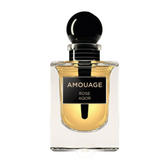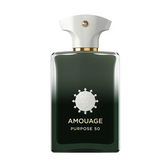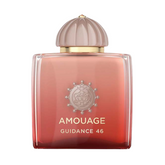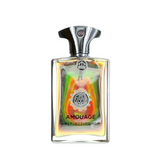Have you ever sprayed some perfume and liked it, and then somebody else sprayed the same bottle and it smelled totally different? You’re not imagining it. One of the most obvious answers to the question: “Why does perfume smell different on everyone?” has a biological, chemical, and even psychological basis. Let’s understand it so that the next time you sniff it, it will be more understandable.
The Science Behind Scent: Skin Chemistry and Composition
Skin Chemistry (pH, oils, and microbiome)
Your skin is not a blank canvas. Fragrance molecules interact with natural oils, sweat, pH level, and the little organisms that inhabit your skin. Such interactions may enhance some notes or dampen some. Stated in brief, the same perfume will have a different chemical reaction on various individuals.
Hormones, Diet, and Medication
Hormonal changes may change the way a perfume develops. Food: consider garlic, curry, or a lot of fish in the diet, which can slightly alter body smell and thus how a perfume communicates. Some drugs and supplements may also change the scent perception.
Perfume Factors That Change How We Smell it
-
Concentration and formulation:
Eau de parfum vs eau de toilette vs perfume extract, the higher the concentration, the longer it may last, and the more it may have a rich smell on the skin. -
Application technique:
Sprayed on garments vs dabbed at the pulse points vs applied over lotion, with each technique altering the projection and duration of effect. -
Temperature and humidity:
The top notes become more open, and the projection becomes stronger when hot; when cold, a scent is brought closer to the skin. -
Age of the perfume/storage:
Light/ heat oxidation may alter a scent with time.
Check out Amouage Reflection 45 For Men!
Quick Comparison Table
|
Factor |
Effect on Fragrance |
|
Skin pH & oils |
Alters which notes pop |
|
Diet & meds |
Can add or mute scent accords |
|
Fragrance concentration |
Affects strength and drydown |
|
Application & clothing |
Changes projection and longevity |
|
Climate & temperature |
Opens or tames volatile notes |
Perception Matters: Nose, Memory, and Context
Smell is associated with memory and mood. Two individuals having dissimilar scent memories or emotional conditions can give completely different descriptions of the same perfume. Culture may also influence the kind of note that someone perceives as either pleasing or offending.
How to Find the Right Perfume for Your Chemistry
-
Always test on skin, not just blotter paper.
-
Let it dry down fully, at least 30 minutes.
-
Try samples or decants before buying a full bottle.
-
Apply to moisturized skin for truer longevity.
-
Compare in different climates/times of day if possible.
The Bottom Line
Accordingly, when you inquire, “Why does perfume smell different on everyone?”, it is a combination of biology, chemistry, and individual perception. Knowing these variables will give you the authority to select fragrances that give you a flattering look, as well as the amount of time you wear them.
Check out Travel Size Perfume at Fragrance Lord!
FAQs: Why Does Perfume Smell Different on Everyone
Q1: Why does perfume smell different on everyone?
A: Perfume smells different on everyone because each person’s skin chemistry, pH level, and body temperature affect how the fragrance molecules react. Factors like diet, hormones, and even skincare products can also change how a scent develops on your skin.
Q2: Does skin type affect how perfume smells?
A: Yes, skin type plays a big role. Oily skin tends to hold fragrance longer and can make scents smell stronger, while dry skin might cause perfume to fade faster or smell lighter.
Q3: Can diet and lifestyle change how perfume smells on me?
A: Absolutely. Your diet, hydration, and lifestyle habits influence your body’s natural scent. Spicy foods, caffeine, or smoking can alter your body chemistry and make perfume smell different.
Q4: Why does my perfume smell amazing on someone else but not on me?
A: This happens because the perfume interacts uniquely with your body chemistry. What smells floral or warm on one person might turn sharp or musky on another due to differences in skin oils and hormones.
Q5: How can I make perfume smell the same every time?
A: You can improve consistency by moisturizing before applying perfume, spraying on clothes instead of skin, and avoiding mixing different scented lotions or products that alter the fragrance.
Q6: Do hormones affect how perfume smells?
A: Yes. Hormonal changes—like during stress, menstruation, or pregnancy—can alter body chemistry, making perfumes smell stronger, sweeter, or even sour at times.
Q7: Why does perfume smell different over time?
A: Perfumes evolve through different scent stages—top, middle, and base notes. As time passes, the lighter top notes fade and the deeper base notes emerge, changing how the fragrance smells on your skin.












